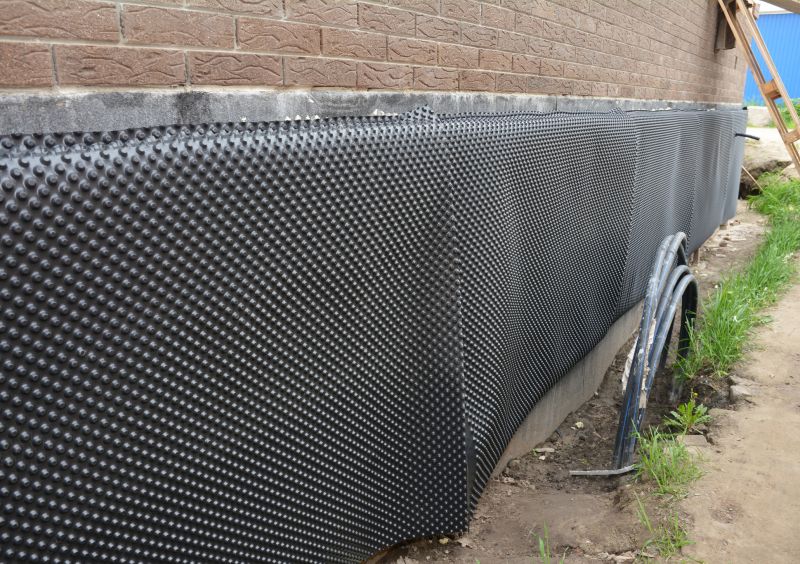Top Waterproofing Products for Reliable Protection
Explore the leading waterproofing solutions designed to safeguard your property from water damage and ensure durability.
 Waterproofing products are essential for protecting structures from water intrusion and damage. Whether applied to foundations, roofs, basements, or interior surfaces, these products help create a barrier that prevents moisture from penetrating surfaces. Proper waterproofing is vital in areas prone to heavy rainfall, humidity, or flooding, especially in regions like Murfreesboro, TN, where weather patterns can vary significantly throughout the year. Selecting the right waterproofing solution involves understanding the specific needs of your project, the type of surface, and the environmental conditions.
Waterproofing products are essential for protecting structures from water intrusion and damage. Whether applied to foundations, roofs, basements, or interior surfaces, these products help create a barrier that prevents moisture from penetrating surfaces. Proper waterproofing is vital in areas prone to heavy rainfall, humidity, or flooding, especially in regions like Murfreesboro, TN, where weather patterns can vary significantly throughout the year. Selecting the right waterproofing solution involves understanding the specific needs of your project, the type of surface, and the environmental conditions.
Top Overall Option
Liquid Waterproofing Membrane
A versatile liquid membrane offers seamless coverage and adaptability for various surfaces, making it suitable for foundations, roofs, and interior areas. Its ease of application and ability to conform to complex shapes provide reliable water resistance when applied correctly. This type of waterproofing is often favored for its flexibility and durability, creating a continuous barrier that can withstand structural movement and weather exposure.
Types of Products For Waterproofings
Liquid Waterproof Coatings
Fluid coatings that form a seamless waterproof layer on various surfaces, ideal for roofs and decks.
Bituminous Membranes
Self-adhesive or torch-applied membranes used primarily for roofing and foundation waterproofing.
Polyurethane Sealants
Flexible sealants designed to fill cracks and joints, providing waterproof seals in various applications.
Cementitious Waterproofing
Waterproof coatings made from cement-based materials, suitable for basements and tunnels.
Rubberized Membranes
Flexible rubber sheets used for roofing, pond linings, and waterproofing tanks.
Spray-On Waterproofing
Spray-applied solutions that create a waterproof barrier on large or irregular surfaces.
Sheet Membranes
Pre-fabricated sheets that are adhered or mechanically fastened for foundation or roof waterproofing.
Crystalline Waterproofing
Chemical treatments that penetrate concrete to form waterproof crystals within the material.
Liquid Vinyl Membranes
Flexible, durable coatings suitable for waterproofing pools, decks, and roofs.
Waterproofing Paints
Paint-based coatings that provide a water-resistant layer on walls and ceilings.
Polymer Modified Bitumen
Enhanced bituminous membranes with added polymers for increased flexibility and durability.
Hydrophobic Sealants
Sealants that repel water, ideal for sealing joints and cracks in masonry and concrete.
Waterproofing Tapes
Adhesive tapes used for quick sealing of cracks, seams, and joints in various surfaces.
Drainage Matting
Materials designed to direct water away from structures, often used in foundation waterproofing.
Waterproofing Additives
Chemical additives mixed into concrete or mortar to improve water resistance.
Popular Choices
Widely used for roofing and foundation projects, offering reliable water resistance.
Flexible and durable coatings suitable for roofs, basements, and ponds.
Commonly used for sealing cracks and joints in concrete and masonry surfaces.
Popular for basement and tunnel waterproofing due to its compatibility with concrete surfaces.
Convenient for large or irregular surfaces, providing a seamless waterproof layer.
Pre-fabricated membranes that are easy to install for foundational waterproofing.
Effective for sealing joints and cracks, preventing water infiltration.
Applied to walls and ceilings to add a water-resistant layer.
Penetrates concrete surfaces, forming internal crystals that block water passage.
Quick and easy sealing solutions for cracks and seams in various materials.
Help divert water away from foundations, enhancing waterproofing systems.
Enhance the water resistance of concrete mixes for structural applications.
There are numerous waterproofing products available, each designed for different applications and surfaces. Liquid membranes, sealants, coatings, and membranes are common options, and each offers unique advantages depending on the project requirements. For example, liquid waterproof coatings can be easily applied to irregular surfaces, providing a seamless barrier. Membranes, whether sheet or liquid-applied, are often used for foundational or roofing projects where durability and flexibility are needed.
Proper surface preparation is critical for effective waterproofing. Surfaces should be clean, dry, and free of debris or loose material before application. Additionally, understanding the compatibility of waterproofing products with existing materials can influence the longevity and effectiveness of the protection. Regular maintenance and inspections are recommended to ensure that waterproofing layers remain intact and functional over time.
Investing in quality waterproofing products can help prevent costly repairs and structural issues caused by water damage. From residential basements to commercial roofing systems, the right product can provide peace of mind and safeguard property value. Consulting with local experts in Murfreesboro, TN, can assist in choosing the appropriate solutions tailored to specific needs and environmental conditions.
Key Buying Considerations
- Identify the specific surface or structure to be waterproofed, such as roof, foundation, or interior walls.
- Determine the environmental conditions, including exposure to water, humidity, and temperature variations.
- Choose the appropriate type of waterproofing product—liquid, membrane, sealant, or coating—based on application needs.
- Assess the compatibility of the product with existing materials and surfaces.
- Consider the ease of application and whether professional assistance is needed.
- Evaluate the durability and flexibility of the product to accommodate structural movement.
- Review the drying or curing time to plan the application process effectively.
- Check for ventilation and safety requirements during application, especially for chemical-based products.
- Look into maintenance and inspection routines to ensure ongoing waterproofing effectiveness.
- Verify warranty options or guarantees offered by the manufacturer or supplier.
- Consider cost-effectiveness relative to the scope of the project and long-term protection.
- Ensure the product is suitable for the specific climate conditions in Murfreesboro, TN.
- Review user feedback or expert recommendations for insights into product performance.
- Determine if additional accessories, like tapes or drainage mats, are needed for comprehensive waterproofing.
- Check for certifications or standards compliance to ensure quality and safety.
